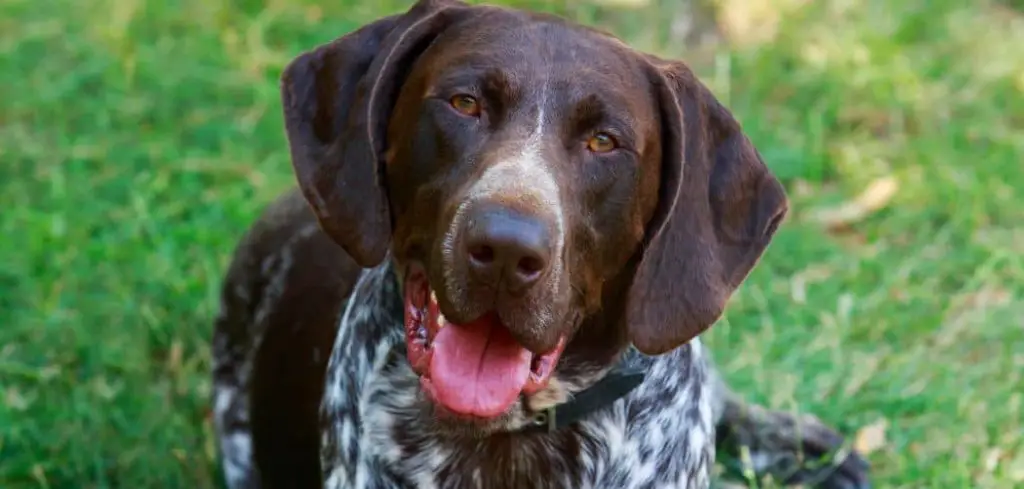When an old dog eats less than usual but otherwise appears normal, it can be confusing. While the dog may maintain energy, playfulness, and normal behavior, reduced appetite can still indicate subtle health changes or age-related adjustments.
Monitoring intake and maintaining proper nutrition is essential to prevent long-term health issues.
We outline the common reasons why an old dog may not be eating as much but acting normal, what you can do, and when to seek veterinary help.
Old Dog Not Eating as Much but Acting Normal — Why It Happens
An old dog not eating as much but still acting normal is often due to the natural aging process. As dogs get older, their metabolism slows, activity levels decrease, and their calorie needs drop — so they may simply not feel as hungry as they once did. Dental discomfort, changes in taste or smell, or a preference for softer foods can also make them eat less without showing signs of illness.
If your senior dog seems happy, alert, and is maintaining a healthy weight, eating less is usually not a cause for concern.
However, if the reduced appetite becomes sudden, is paired with weight loss, vomiting, diarrhea, or lethargy, it’s best to consult your vet to rule out hidden health issues.

Old Dog Not Eating as Much but Acting Normal: Common Causes
Dental Discomfort
Even mild tooth or gum pain can make chewing less appealing.
Dogs may eat smaller portions, favor soft foods, or drop kibble. Look for subtle signs like drooling, bad breath, or pawing at the mouth. Addressing dental health with veterinary care can restore comfort and normal appetite.
Read more: Old Dog Not Eating as Much (Here’s Why)
Age-Related Metabolic Changes
Older dogs may naturally eat less due to slower metabolism or reduced energy requirements.
While some decrease in food intake is expected, monitoring for sudden or significant drops is essential. Adjusting portion sizes, food type, and feeding frequency can help maintain nutrition.
Digestive Sensitivities
Mild gastrointestinal changes with age can reduce appetite without affecting overall activity.
Dogs may prefer softer foods or avoid meals temporarily. Providing easily digestible foods and monitoring stool quality can prevent further issues.
Stress or Environmental Factors
Changes in routine, boarding, or household disruptions can temporarily reduce appetite.
Dogs may still play, interact normally, and appear healthy but skip meals. Maintaining a consistent feeding schedule and calm environment encourages regular intake.
Mild Organ Dysfunction
Early kidney, liver, or pancreatic changes may subtly reduce appetite without obvious behavioral changes.
Dogs may maintain normal energy but eat less due to mild nausea or discomfort.
Veterinary monitoring can detect and manage early-stage organ issues before they become severe.
Food Preference Changes
Senior dogs may develop aversions to their usual food type, particularly dry kibble.
Dogs may accept soft, aromatic, or warmed meals while avoiding standard meals. Observing food preferences and offering palatable alternatives ensures adequate nutrition.
What to Do If Your Old Dog Is Not Eating as Much but Acting Normal
Offer smaller, more frequent meals to make eating easier.
Provide soft or moist foods, warming meals slightly to enhance aroma and appeal.
Ensure water is easily accessible to maintain hydration, and monitor stool quality and weight.
Keep a record of food intake and behavior changes to assist your veterinarian in evaluating potential underlying causes.
When to Call or Visit Your Vet
Contact your veterinarian if your dog:
Eats significantly less over several days or weeks
Shows subtle signs such as mild lethargy, vomiting, or weight loss
Exhibits dental discomfort, drooling, or difficulty chewing
Experiences changes in drinking, urination, or stool quality
Even when behavior seems normal, reduced food intake can indicate early-stage health issues. Veterinary assessment ensures nutritional needs are met and identifies potential underlying conditions.
Read more: Old Dog Not Eating (Causes and what to do)
Key Takeaway
When an old dog is not eating as much but acting normal, subtle age-related, dental, digestive, or stress-related factors may be involved.
Home care includes offering smaller, palatable meals, monitoring water intake, and observing weight and stool quality. Persistent reduction in appetite, even without behavioral changes, requires veterinary evaluation to maintain nutrition, prevent gradual weight loss, and support overall health in senior dogs.
